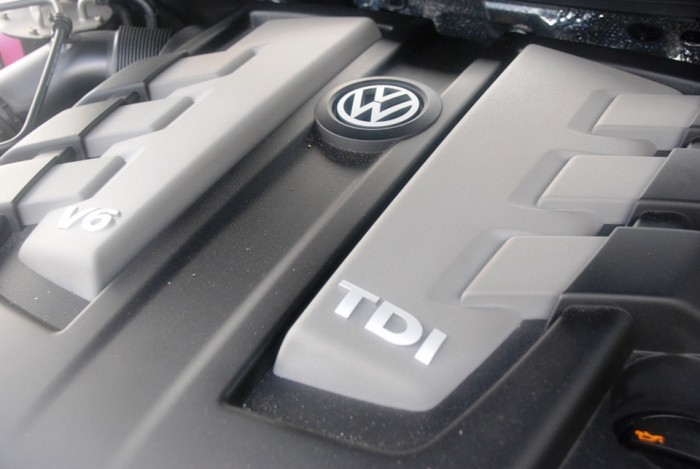Think VW Dieselgate is serious? You ain’t seen nothin’ yet
Though the impact in Asia is to date minimal, the fallout of Volkswagen’s diesel emissions cheating scandal, or colloquially referred to as Dieselgate by the press these days, is shaping up to be immense. The parody videos and memes have poked fun at the issue, but for the VW Group as a whole, it certainly is no laughing matter.
Consumer groups and environmental authorities are crying foul, members of top management have resigned, company shares are plummeting, and, perhaps most damning, the whole fiasco has given Volkswagen’s brand image a severe battering on top of the pounding it is already getting from reliability issues with its DSG transmissions.
When news broke that Volkswagen had a ‘cheat software’ in their diesel-powered cars that results in the engine running a ‘test-optimized’ setting to generate lower emissions, my immediate response was neither shock nor anger, but sheer bemusement; bemused that people were actually surprised by these findings.
Thanks to electronic software management and advanced direct injection systems, engine tuning have reached unprecedented levels of precision. A generic 2.0-litre four-cylinder turbo engine, for example, can be tuned to achieve a variety of outputs ranging anywhere from 180 to 250hp just by software tweaks. It is why ‘engine chipping’ is such a popular mod these days – piggy back a microchip on your factory ECU and, voila, you go home with an extra 50 ponies under your bonnet, and that’s conservative.
Indeed, modern engines have rendered the old adage about there being no replacement for displacement irrelevant, but engine performance tuning remains a fine art of balancing specific outputs against other factors such as fuel economy, day-to-day drivability, and durability. You can tune as much as 1,000hp from a 1.5-litre engine with 1980s know-how, but can you live with having to rebuild that engine every day? We suspect not. When so many conflicting requirements come together, something has to give; we call it a compromise.
In developing its latest generation diesel engines, Volkswagen found that it had to balance between meeting tough emission standards whilst satisfying the consumer’s desire for engaging performance and parsimonious fuel economy. Faced with this no-win scenario, VW went with Captain Kirk’s solution for the Kobayashi Maru test.
Because scientists and engineers like repeatability in their experiments, engine test cycles follow very specific procedures with little to no variation. Additionally, modern engine and transmission control systems are continuously fed with data from a wide network of sensors placed throughout the vehicle. As such, is it at all surprising to hear that Volkswagen has a specific engine setting that runs to give the engine’s best possible emissions within those parameters? Let’s just say that I’d be very surprised if VW was the only one doing this.
This is, of course, written not to absolve VW from any responsibility from this affair. As a responsible corporate entity, VW has the obligation to ensure that its products are made with utmost care to environmental sustainability. That they have been found to spew out more nitrogen oxides than they should, the company needs to fix this without delay.
Should they be persecuted as harshly as they have been? I’m not so sure. At the very least, whatever punishment meted should be more lenient than whatever that’s going to be handed out to Takata for putting faulty airbags in still-to-be-counted millions of vehicles and have actually resulted in deaths of people.
This, then, brings us to a disturbing revelation made this week by ASEAN NCAP which, in a statement issued through the organization’s official website, highlighted that a ‘locally-made car’ was found to have removed its top tether child seat anchor points, creating a significant spec deviation from the variant that was tested and awarded a star rating.
ASEAN NCAP did not disclose the said manufacturer’s identity, but if we are to take its description of a ‘locally-made car’ to imply a local brand, the list of suspects narrow down to the Proton Iriz, Proton Preve, Proton Saga FLX, Perodua Axia, and Perodua Myvi. The Perodua Alza as tested by ASEAN NCAP already did not feature a child seat top tether.
Locally-assembled models with top tether tested by ASEAN NCAP to date include the Great Wall Haval M4, Honda City, Honda Civic, Honda CR-V, Honda HR-V, Honda Jazz, Isuzu D-Max, Kia Picanto, Nissan Teana, Peugeot 208, Subaru XV, and Suzuki Swift.
The statement went on to elaborate that ‘ASEAN NCAP will send a show cause letter to the said manufacturer with demand on a plan to recover the situation. The result from the discussion will be either the car to be retested with lower specification variant or total rating will be suspended’.
So, here we have it, a case of two manufacturers selling cars that perform differently on road than they do on test. There is no doubt which is the more serious deception and it is the one that skimped on safety. Volkswagen may have pulled a fast one on the authorities, but the net result was that consumers did have a few good years of strong performance and good fuel economy to enjoy off their VW/Audi/Skoda diesels. Removing a key safety feature, on the hand, is utterly irresponsible and unbefitting of any manufacturer in the modern age.
I conclude this article on two thoughts. Volkswagen’s convenient bypassing of emissions test cycles means that the onus is now on the authorities to conceptualize a more robust test mechanism that is more representative of the general public’s day-to-day driving habits. The unnamed manufacturer that cut safety corners, on the other hand, must own up to its fault and take full responsibility of the matter.
Note: Article is the personal opinion of the writer.





























